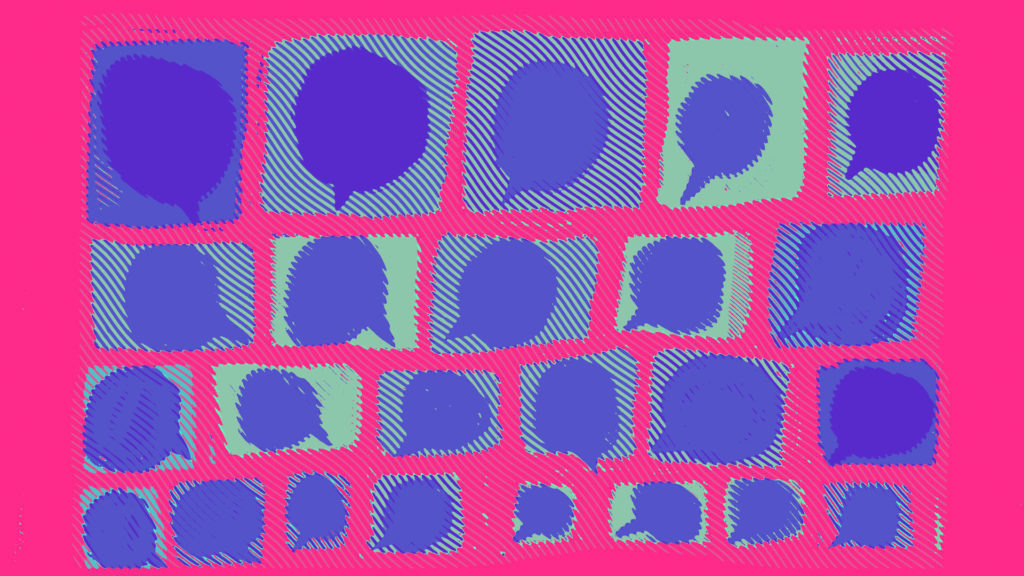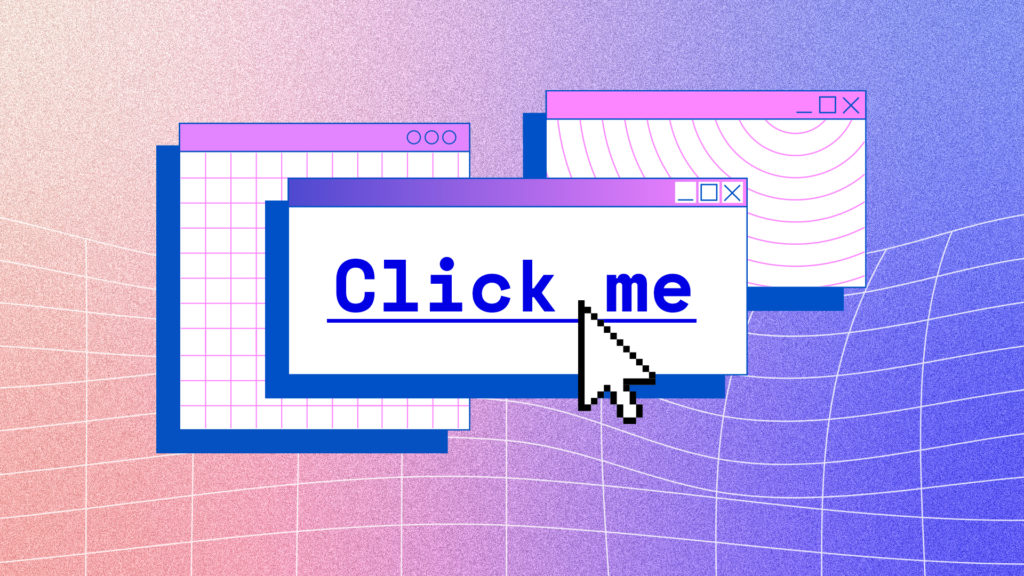Browsers, cookies and surfing the web: The quirky history of internet lingo


Dr. Erica Brozovsky is a sociolinguist, a public scholar and a lover of words. She is the host of Otherwords, a PBS series on language and linguistics, and a professor of writing and rhetoric at Worcester Polytechnic Institute. You can find her at @ericabrozovsky on most platforms. Photo: Kelly Zhu
The internet is ubiquitous: on our desks, in our pockets, even in the air around us, as radio waves transmit between devices so we can be online on the move. It’s a sprawling web of interconnectivity, linking people and gadgets around the world. When computer scientist Tim Berners-Lee wrote his first proposal for a hypertext project called WorldWideWeb in 1989, there’s no way he could have known the impact his invention would have on billions of people across the globe, which he confirmed in a 2014 Reddit AMA.
In the 35 years since the invention of the World Wide Web, an explosion of new internet words has emerged. As new technologies develop, we adopt words or create novel ones to fill in the linguistic gaps. For example, to describe one of the advancements of the Industrial Revolution, the word train was extended from its older definitions as a procession or sequence of objects in a row. And the steam-powered vehicle pulling a train of railway cars? That brand new technology needed an innovative name: locomotive. People often incorrectly think locomotives and trains are synonymous, and are similarly mistaken with the internet and the World Wide Web. To keep the transportation analogy going, the internet is the railway system, the data that moves between sites or sends emails is the train, and the World Wide Web is the scenery and points of interest along the route.

As far as names go, internet and World Wide Web make sense. The words visualize interconnectedness. Other internet terms like bookmark, which functions digitally the same way as a tangible piece of material is used to denote a place in a book, and email (an abbreviation of electronic mail), show clear parallels in meaning to their analog counterparts. Websites are locations, or sites, on the web. Domains are subsets of the internet under the control of a single authority, much like a physical territory that a ruler would have dominion over. And if you know that the prefix hyper- means above or beyond, you’ll understand that hypertext and hyperlinks essentially go beyond the constraints of normal text and links. But not all internet words are so etymologically evident, and some even come with stories. Let’s start at the very beginning.

When you access the internet, you open a browser (which first appeared as the acronym BROWSER for BRowsing On-Line With SElective Retrieval) and begin to navigate around, otherwise known as surfing the internet. The term is often attributed to librarian Jean Armour Polly, who wanted a pithy metaphor for the fun and chaos of navigating the online world for her 1992 article’s title. Polly wasn’t the only one with a penchant for riding waves online: a 1991 comic book “The Adventures of Captain Internet and CERF Boy” published by CERFnet depicted a superhero who literally surfed around on a surfboard answering internet cries for help.
Keeping it oceanic, the term phishing is attributed to hacker Khan C. Smith in the mid 1990s, allegedly based on the homophone fishing: trawling for sensitive information from a sea of internet users. The alternative spelling is a nod to phreaking, which was a way of hacking telephones (hence “ph”) to avoid paying long-distance phone charges (remember those?). And speaking of pesky things, the word spam comes from an iconic 1970 Monty Python’s Flying Circus sketch wherein a horde of Viking cafe-goers repeatedly sing the menu item Spam, drowning out all other conversation.
That’s not the only internet food you’ll encounter. It seems like every website you access will ask you to accept cookies in order to personalize your experience, but weren’t we all raised not to accept sweets from strangers? So where did the name come from? Programmer Lou Montulli got the idea for the web version of cookies from the Unix data token term magic cookie, which sounds even more questionable to accept. There has been no confirmed origin of “magic cookie,” but three main theories prevail: drugs, fairy tales, and literal cookies. Perhaps it comes from the 1960s comic strip “Odd Bodkins” that uses magic cookie as a euphemism for LSD. Or maybe much like the Hansel and Gretel crumb trail, browsing the internet leaves a stream of cookie data in your wake. Or potentially the connection is less imaginative: cookie jars store cookies the way browsers store information.
When you go to delete cookies on your machine, you’ll also be asked if you want to clear your cache. Cache has been around since the turn of the 18th century as a hiding place for goods and treasures, from the French cacher meaning “to hide.” The word was first applied to computing in 1967 by IBM Systems Journal editor, Lyle R. Johnson. Apparently no one had any suggestions for a substitute for the clunky phrase “High Speed Buffer” so Johnson sat down with a thesaurus and came up with cache.
Another cache on your device is the download cache. Downloading was originally used in military contexts to refer to unloading people or goods from various military vehicles (and uploading was the reverse). By 1968, the US Air Force extended the meaning to computers, as discussed in a quantitative study that referenced downloading records from the IBM 305 RAMAC computer to the newer IBM 1050, which took almost two weeks.
“While we stare at our phones and computer screens, it’s a nice reminder that the intention behind these technologies was to connect us together.”
Dr. Erica Brozovsky, sociolinguist
Thirty years later, Jorn Barger coined the term WebLog, a portmanteau of web and log, to refer to online personal journals. In 1999, perhaps as a joke, Peter Merholz posted in the sidebar of his own website: “”For What It’s Worth, I’ve decided to pronounce the word “weblog” as wee’- blog. Or “blog” for short.”” And now blog has generated other new words like vlog, blogosphere, and blogger.
Avatar derives from the Sanskrit avatāra, meaning “descent,” which in Hinduism referred to the manifestation of a deity into an Earthly terrestrial form. The 1985 computer game Ultima IV: Quest of the Avatar was the first application of the concept of an on-screen character as the digital incarnation of the human user. Neal Stephenson’s novel Snow Crash popularized the idea, which continues to be applied across a wide variety of genres: video games, social media, virtual worlds, even Hollywood blockbusters.
Speaking of width, bandwidth was initially very literal in the 1800s (the width of a band of color or material) and then evolved significantly over 200 years. We can follow the logical progression to physics and mathematics (a range of values within a limited band), to physics and telecommunications (the difference between two frequencies which represents transmission capacity) to computers and telecommunications (data transfer capacity) to general life (emotional or physical capacity). It’s curious how the term moved beyond computers and technology back to the human experience.
We’re humans after all, and the internet and World Wide Web are tools for expanding our human experience. While we stare at our phones and computer screens, it’s a nice reminder that the intention behind these technologies was to connect us together. After all, Tim Berners-Lee said the thing he’s most proud of about the World Wide Web is “the wonderful global collaborative spirit of all the people who turned up to help build it and build things on it.”
